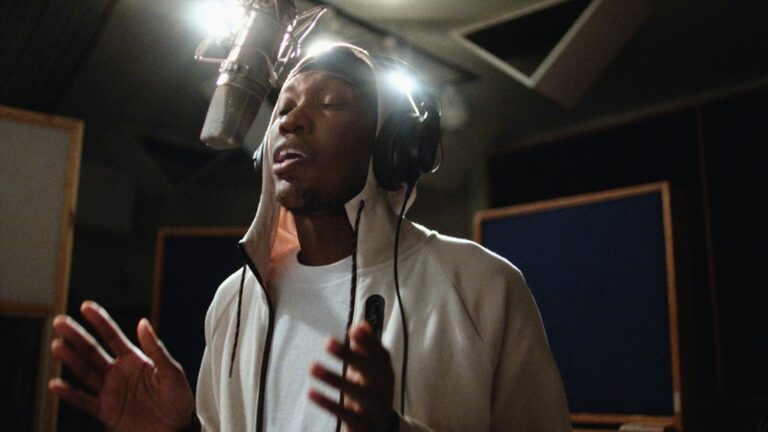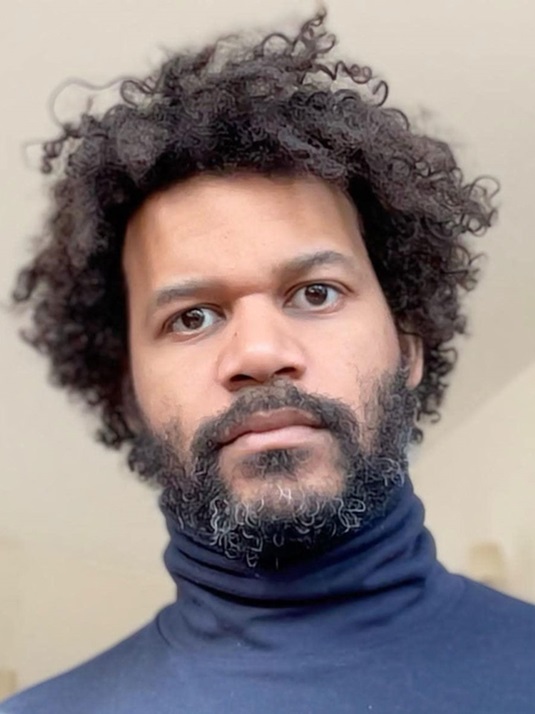
Rap is a music genre like so many others, and yet it’s not regarded that way by some. An experimental survey that utilized a folk song from the 1960s got predictably skewed results when respondents thought its lyrics came from a rap song and assigned malicious real-life intent to many of its words. That rappers are being prosecuted for criminal activity and having their lyrics used against them as character evidence is a disturbing trend that shouldn’t be allowed to persist, and As We Speak takes a firm stand against it while tracing its roots.
As its primary subject, this documentary features Kemba, a Bronx native. The rapper is fascinated – and disturbed – by how many of his colleagues have had the words they have written taken literally and presented against them in court. As he meets with other peers, he discovers this is an international issue, traveling to London to understand how things are very much the same even if the government goes about its crackdown approach in a different way.
Drill music is specifically featured as an art form that serves most often as a target of criminal investigations. Watching numerous performances and then seeing how the very industry is criminalized and its most prominent performers closely watched and punished is deeply unsettling. An arrest not resulting in extensive jail time is still highly damaging and negatively transformative, and each case shapes a new precedent that allows for the perpetration of another such pursuit of supposed criminal activity.

In addition to its showcase of artists who have needed to occupy their time with with either preemptively or remedially defending their creative intentions, this film contains interviews with a handful of legal authorities for whom this is their daily work. They’re well aware of the history of this particular brand of criminal justice, as well as changes and trends that have led to this moment. They’re well-versed in what the law actually says and have watched with concern as the rap industry in particular has been villainized and then set up as a place where people expect there to be some sort of malicious activity at play.
There is an inherent and unsubtle undercurrent of racism within all of this that is not lost on the artists and legal scholars interviewed. The idea that violence in certain communities by association implicates all people with the same skin color or that music with potentially offensive lyrics leads in turn to violence is broad and inaccurate, and it’s a self-perpetuating system. The film includes a tribute to the staggering high number of rappers who have lost their lives in recent years, but their music is emphasized as an outlet for creativity, rather than something that only fuels more volatility.
Director J.M. Harper’s past credits include Jeen-yuhs: A Kanye Trilogy, and he has previously explored other subjects related to what it means to be Black in America. His latest film breaks down the dangerous potential of preconceived notions, looking at how those ideas came to be popular and how they are only applied to a selective population. As We Speak doesn’t have all the answers but does spotlight the crucial work being done to enshrine protections for artists that both cover their free speech and shield them from the possibility of their artistic work being misappropriated against them. It’s certainly a challenging, uphill battle, one whose progress is dependent most on the ability of people to open their minds to what they’ve learned that may not be correct.
Grade: B+
Check out more of Abe Friedtanzer’s articles.
As We Speak makes its world premiere in the U.S. Documentary Competition at the 2024 Sundance Film Festival and debuts on Paramount+ on February 27th.

